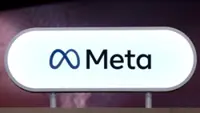FILE PHOTO: An illuminated Google logo is seen inside an office building in Zurich, Switzerland December 5, 2018. REUTERS/Arnd Wiegmann/File Photo
(Reuters) - The U.S. Justice Department and Alphabet's Google on Thursday wrapped up the evidentiary phase of their legal fight over whether Google broke the law to maintain its dominance of search and some search advertising.
Judge Amit Mehta of the U.S. District Court for the District of Columbia will rule sometime in 2024 on whether any of Google's actions broke antitrust law. The following is what might happen after his ruling, according to experts.
Already a subscriber? Log in
Save 30% OFF The Star Digital Access
Cancel anytime. Ad-free. Unlimited access with perks.





